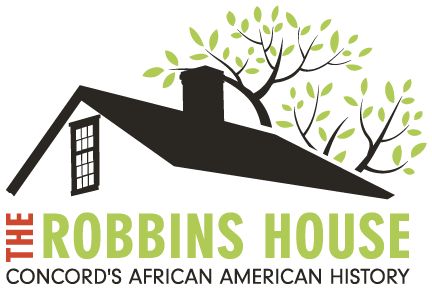Making history come alive in Concord
By Jim Callahan / concord@wickedlocal.com
If Ellen Garrison were alive today, she would have been thrilled to see the eager young faces gathered in the Robbins House to not only learn about Concord’s African-American history, but also to hear about the important role Garrison played in advocating for civil rights in the 1800s.
The young faces belonged to students in grades K-5 from the Greenfield Commonwealth Virtual School, who, along with their parents and organizer Alison Kinney, visited the house on Feb. 16. Members of the Robbins House board and advisers engaged the students in a variety of activities, concluding with a presentation by Maria Madison, board president, as Ellen Garrison.
Garrison, who was born in the house in 1823 and attended public schools in Concord, would go on to become a teacher. In 1866, she challenged segregation in a Baltimore train station only one month after the nation’s first Civil Rights Act had been passed.
A courageous journey
Clad in a pale blue dress and faded straw hat, similar to what Garrison may have worn, Madison described to the students, gathered around in the upstairs attic, Garrison’s courageous journey. It took her from Massachusetts to Virginia and onto Maryland, Kansas and California, explaining the struggles she and other African-Americans faced during those times.
Ala Muhammed, 6, attending with sister Samya, 8, brother Josh, 10, and mom Desiree from Springfield, commented, “It’s a small house.” When asked about Ellen, Ala said, “They threw her out of the train station. They shouldn’t have done that.”
Added Josh, “All people should have rights. Back in the day, they didn’t. There were a lot of things that blacks couldn’t do.”
Annabelle Harwood, 10, attending with mom Lily from East Freetown, said she “learned about a lot of things and the civil rights (Act) of 1866.” Referring to Ellen’s encounter in the Baltimore train station, Annabelle said, “She had to be brave to say ‘I can sit here’.”
Personal learning
The Greenfield Commonwealth Virtual School is a relatively new approach to teaching, with a mission to “pioneer personal learning in Massachusetts.” Providing online learning programs that students can access from home, GCVS delivers courses to students through a cloud-based platform accessed through computers and “smart” devices.
Staffed with 45 educators, Greenfield is a Title One public school with an emphasis on flexibility, which, its brochure says, “is tailored to a modern world of diverse interests and independent learners.”
Family Engagement Coordinator Alison Kinsey said she was excited to learn about the Robbins House, and the fact that it invited students throughout the state to take part in a unique field trip that honored African-American History Month. Students came from Natick, New Bedford, Methuen, Haverhill, Uxbridge, Revere, Shirley and other towns, while more than 60 other students were able “to attend” via a Skype-like platform enabling them to watch what was happening and ask questions.
Noted Kinsey, “Ellen’s (Garrison) life – the challenges she faced and overcame, her perseverance, fortitude and love of learning – what a great story for our children, some of whom face adversity for being different. I believe it’s especially important for young people today to find ways to be included in one’s community amid experiences of being excluded.”
How they lived
Ayla Allen, 7, with sister Autumn, 8, and dad David, said she was excited about the visit. She said they had been reading “a lot about African-American history”, and were interested in “seeing an old house and how a black family lived back then.”
“It’s a cool house,” said Geno Corey, 10, “but I’ve never seen one so small. And, oh yeah, I learned a lot about the first civil rights act.”
Other students like Jace LaPointe with mom Megan Vieira, and Holly and Bella Woisin, ages 7 and 9, respectively, and Camille Garcia, 11, shared similar sentiments. Cortana Reynolds, 5, took a somewhat different approach. “I learned some stuff,” she said, “but I really liked how they gave out oranges and those blankets we sat on.”
Madison said, “We (the Robbins House) are honored to be an important educational source for students across the state. Visiting this house is like stepping back in time to connect with the earliest African and American history. It’s where history comes alive for students in ways no text book can.”

![Did you know that April is National Poetry Month? We have you covered with a little Robbins house trivia. Ralph Waldo Emerson wrote a poem entitled Peter’s Field. Peter’s Field most likely referenced Peter Hutchinson, who was the last African American owner of The Robbins House. Peter purchased the home in 1852 and lived with his wife, Nancy, and several of their children in the home until 1868. Emerson described Peter’s farm, and by extension the original area of farmland attached to The Robbins House out in the Great Field like this:
KNOWS he who tills this lonely field
To reap its scanty corn,
What mystic fruit his acres yield
At midnight and at morn?]
That field by spirits bad and good,
By Hell and Heaven is haunted,
And every rood in the hemlock wood
I know is ground enchanted.
[In the long sunny afternoon
The plain was full of ghosts:
I wandered up,
I wandered down,
Beset by pensive hosts.
For in those lonely grounds the sun
Shines not as on the town,
In nearer arcs his journeys run,
And nearer stoops the moon.
There in a moment I have seen
The buried Past arise;
The fields of Thessaly grew green,
Old gods forsook the skies.
Happy Reading!](http://robbinshouse.org/wp-content/plugins/instagram-feed/img/placeholder.png)